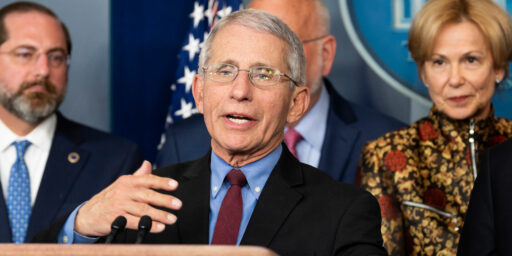From The Department of Redundancy Department
The General Accounting Office recently concluded a study of a Pentagon study about studies:
The Pentagon was inundated with so many studies in 2010 that it commissioned a study to determine how much it cost to produce all those studies.
Now the Government Accountability Office has reviewed the Pentagon’s study and concluded in a report this week that it’s a flop.
The study of a study of studies began in 2010 when Defense Secretary Robert Gates complained that his department was “awash in taskings for reports and studies.” He wanted to know how much they cost.
Two years later, the Pentagon review is still continuing, which prompted Congress to ask the GAO to look over the Pentagon’s shoulder. What they found lacked military precision.
The GAO found only nine studies that had been scrutinized by the Pentagon review, but the military was unable to “readily retrieve documentation” for six of the reports.
(…)
The Pentagon “partially concurs” with the GAO’s report.
The cost of the study of the study of the studies was not available from the GAO.
We actually pay people to do this stuff, people.






Are they hiring?
I don’t think anyone has accused the government of lack of imagination when it comes to way to
wastespend money.Technically it is not redundancy, but up one meta-level each time instead. If you have studies, you can study them (meta 1) or review the review (meta2).
That the meta2 study calls bs on the meta1 study might actually be useful for cost-cutters.
The question the meta studies are supposed to answer is about the value of the underlying research.
Am i supposed to be MAD about the government holding itself accountable for spending? Because personally, I think that studies about the efficacy of federal programs are useful. Call me crazy.
NBD. It’s all free money! You can harvest it from the money vines planted in the community money fields over in Moneytown.
@Alex Knapp:
No.
Agree.
No.
We also have a government-created non-profit (the PCAOB) that audits the external auditors that audit SEC-registrants, whose financial statements are generally also reviewed by internal auditors before going to the external auditors.
And that is generally regarded as a good thing.
@Alex Knapp:
So first we pay people to create (mostly useless) studies. Then we commission a report to study the efficiency of those studies. Then we create another stupid to study the efficiency of the commission created to prepare a report on the efficiency of studies. And we find that said commission hasn’t done any real work at all.
Yea, I’m really glad the government is around to do stuff like this.
< /sarcasm off >
Hey, if you want stuff to get done without five extra copies of paperwork each time, get thee to a dictatorship.
Also, I’m sorry, I thought we were hoping to cut Defense’s budget. Now we have proof and you call this government waste?
No, no, it only turns into government waste when Defense commissions a study on how fat the GAO’s mother is.
Well, I think Gates was on the right track, but they probably should have just skipped the internal study and gone right with the external study (meaning the GAO should have reviewed the Pentagon’s use of studies directly, rather than indirectly).